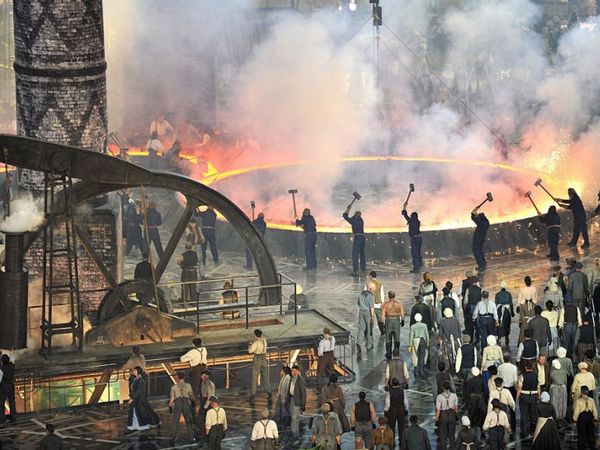
Creative Essays Deserving Your Attention

The period from the middle of the 18th century to the middle of the 19th century is known as the Industrial Revolution in the world, the birthplace of which is considered to be Great Britain. Changes in technology, agriculture, manufacturing, transportation and mining quickly spread across Europe, North America and the entire world. The Industrial Revolution brought significant changes into the history of civilization, the consequences of which are still observed.
The invention of machines and techniques made it easier and faster to perform the jobs and task that had been conducted by humans. Moreover, the textile industry became one of those areas that were completely altered and facilitated by the Industrial Revolution. With industrialization, machines started to increase the level of production, wasting less time and efforts.
The global effect of the revolution was reflected on cheaper prices, a major increase in job opportunities, and better life conditions. The number of the produced products before the industrialization had led to a stagnant economic situation. This was drastically changed with the appearance of factories, which were in need of employees and provided people with a huge number of job places for more new products and techniques to be invented. The working class got an opportunity to earn more money and maintain the living standards, as well as the consumer products market.
As Great Britain was the birthplace of the Industrial Revolution, the reason of it was that Britain had a major colonial power and supplied raw materials not only within the boundaries of one country, but also its colonies overseas. The industrial state increased importing and exporting goods, which improved the living standards in general. Foreign trade became one of the ways of supporting the economies of the countries all over the world, the USA in particular.
Urbanization is another defining feature of the Industrial Revolution. Population movement from the countryside to the cities meant that more and more people were leaving the rural areas. However, the growth of cities had a disadvantage of horrible sanitary conditions and overcrowd.
Apart from positive effects, the Industrial Revolution brought, there were major downsides too. Firstly, the excellent performance of machines led to the pollution. Secondly, the working conditions started to deteriorate as the factories became all about profits. The working class suffered from really poor attitude, long working hours, including dangerous and unhealthy conditions. Moreover, women and children were employed at survival wages in order to maximize profits.
On the other hand, the period of the Industrial Revolution gave the workers an opportunity to receive protection from extreme abuses and to make demands of the employers. The employed began to fight for their interests, going on strikes and riots and insisting on the raise of wages and the improvement of working standards, which gave a push to the formation of the trade unions.
Get a custom-written paper